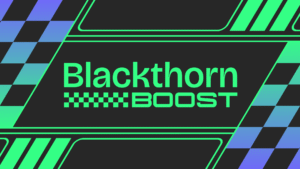
Event planning today runs on technology. From registration and payments to engagement and reporting, the tools you use shape the entire experience.
Yet despite its importance, research shows nearly half of event planners say they don’t feel confident making decisions about their event tech stack, even though 91% agree it’s an important part of their job.
This skills gap has helped fuel the rise of a new role: the event technologist. But not every organization is sure what that role really means in practice. Which leads to an important question: Do you need to hire an event technologist, or could a smarter event technology stack give you the same results?
Before you can decide if you need one, it helps to understand exactly what an event technologist does.
What Is an Event Technologist?
An event technologist is a dedicated professional who manages the tools, integrations, and data behind your events. They’re part strategist, part systems admin, and part problem-solver, making sure your event tech works together to deliver a unified attendee experience.
A big part of their role is ensuring event technology works smoothly with the organization’s CRM. This means attendee data, registrations, and engagement insights don’t sit in separate systems — they flow directly into the central database that sales, marketing, and service teams rely on. Done well, this creates a single source of truth and allows event data to drive broader organizational strategy.
For large enterprises that run hundreds of events a year, this role can be invaluable. With dozens of moving pieces, multiple systems, and varied stakeholders, having someone solely focused on event technology governance ensures nothing slips through the cracks.
What Does a Smarter Technology Stack Look Like?
An event technology stack is the collection of tools your team relies on to plan, market, run, and measure events. The most effective stacks don’t just sit in silos — they connect directly with your CRM.
A smarter stack emphasizes:
- Consolidation: Fewer tools and less fragmentation, so teams spend less time juggling platforms.
- One Source of Truth: Event data captured and stored in your CRM, giving everyone access to the same information.
- Automation: Workflows that eliminate manual tasks and free up your team to focus on the attendee experience.
With the right stack, smaller and mid-size organizations can unlock enterprise-level efficiency without the overhead of adding new roles.
When a Consolidated Tech Stack Is Enough
For many organizations, investing in a more capable event technology platform is the simplest way to scale. You might not need an event technologist if:
- You’re running a moderate number of events per year.
- You want to reduce silos and manage everything inside your CRM.
- You need better visibility into ROI but don’t want to expand headcount.
- You’re focused on attendee engagement but lack resources for manual data wrangling.
Here, the right event management technology replaces complexity with clarity.
When a Technologist Makes Sense

That said, there are scenarios where an event technologist is still the right investment:
- Large enterprises with high event volume, multiple business units, or complex approval processes.
- Organizations using multiple disparate tools that need custom integrations.
- Teams that view events as mission-critical and need ongoing strategy, governance, and optimization beyond what the software provides.
In these cases, an event technologist can act as the bridge between technology, marketing, IT, and events — ensuring everything runs at scale.
The Middle Ground: Strategy First, Roles Second
The truth is, it doesn’t have to be an either/or. Most organizations benefit from starting with a smarter event technology stack. Once your systems are consolidated and automated, you can evaluate whether hiring an event technologist is the next logical step.
Think of it this way:
- Smaller organizations → Start with the right tech stack, and let automation do the heavy lifting.
- Larger organizations → Pair a strong stack with an event technologist who can maximize its potential.
Do You Really Need an Event Technologist?
The truth is, there isn’t a one-size-fits-all answer. For some organizations, especially large enterprises with complex programs, a dedicated event technologist adds real value. For others, the smarter move is investing in a well-integrated event technology stack that can deliver many of the same benefits without adding headcount.
This is where Salesforce-native event technology solutions can make a difference. By consolidating registration, payments, and engagement directly into Salesforce, you eliminate silos and create a stronger foundation for your events. For some teams, that foundation may be all they need. For others, it becomes the platform an event technologist can use to drive strategy even further.
Key takeaway: Start with a smarter stack. It gives you flexibility — whether you grow into a dedicated role later or keep scaling without one, your technology will be ready to support you.
Want to Measure the Real Impact of Your Current Event Tech Stack?
Check out The 9 Big Shifts Redefining Events for 2026 — a report on the trends reshaping events and the key metrics that show whether your strategy is working.


